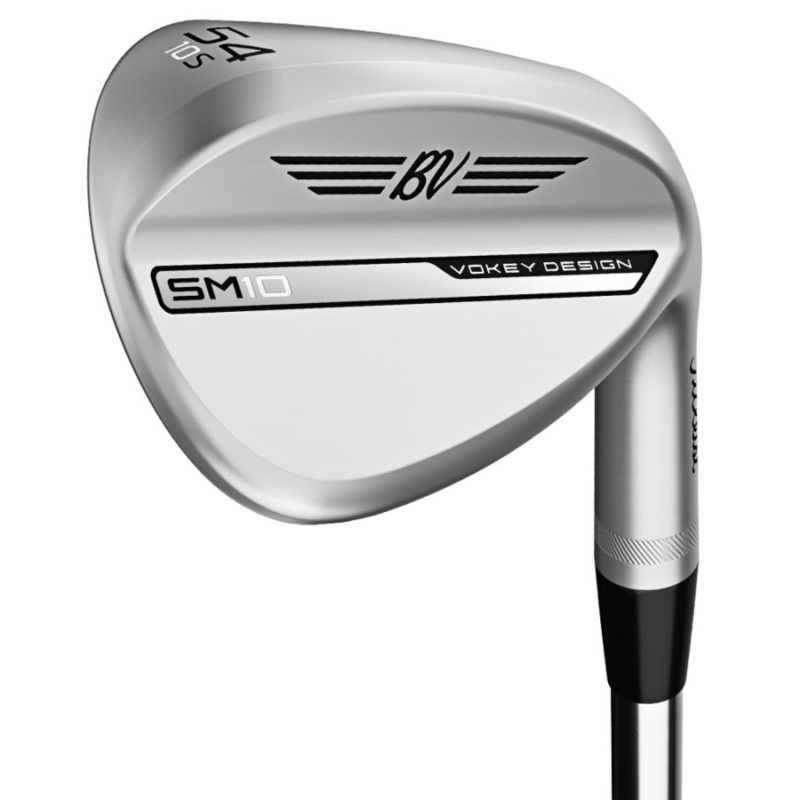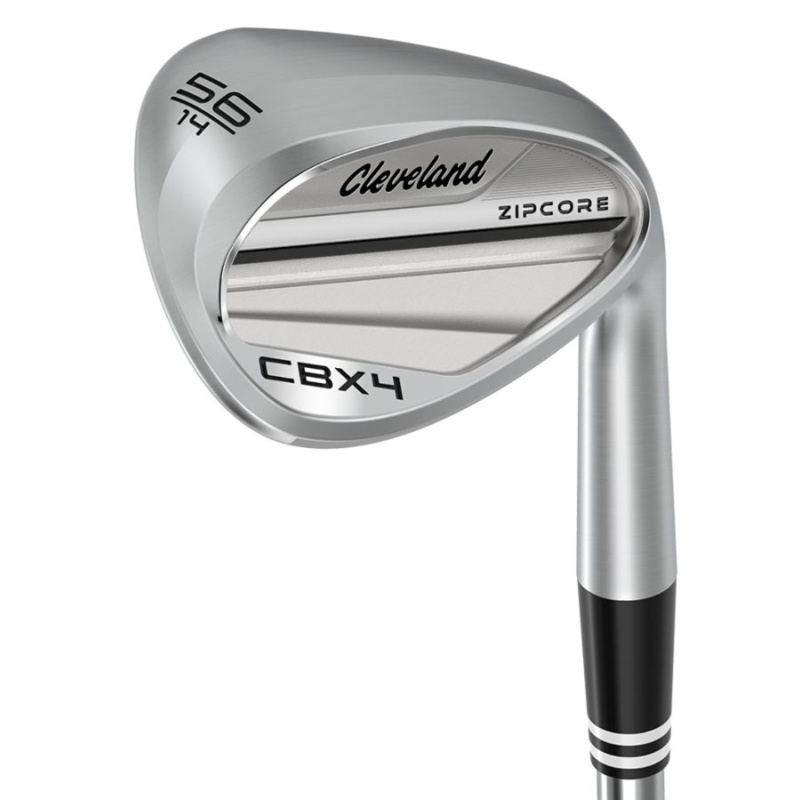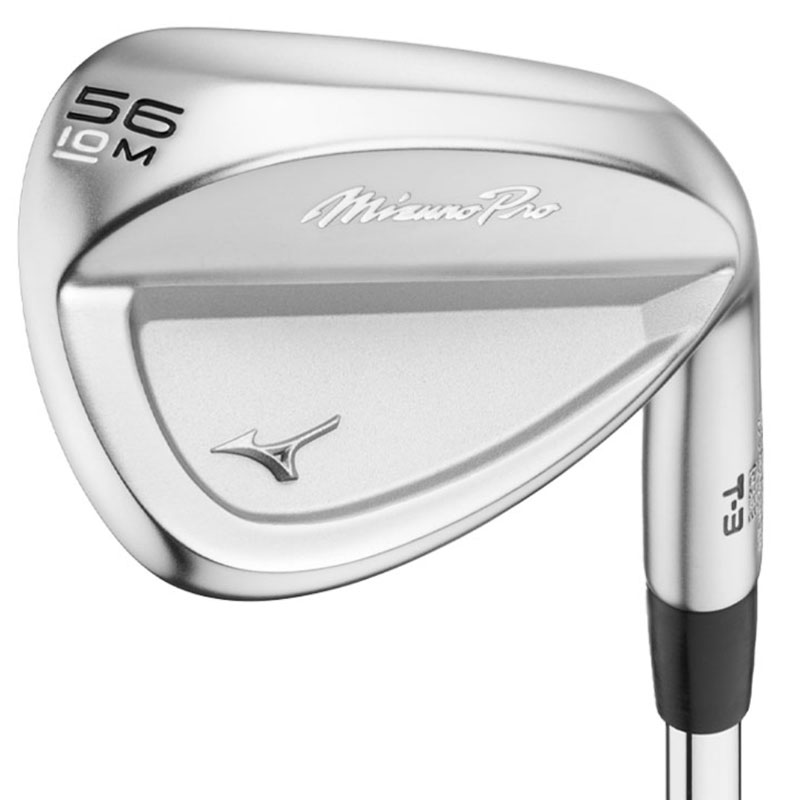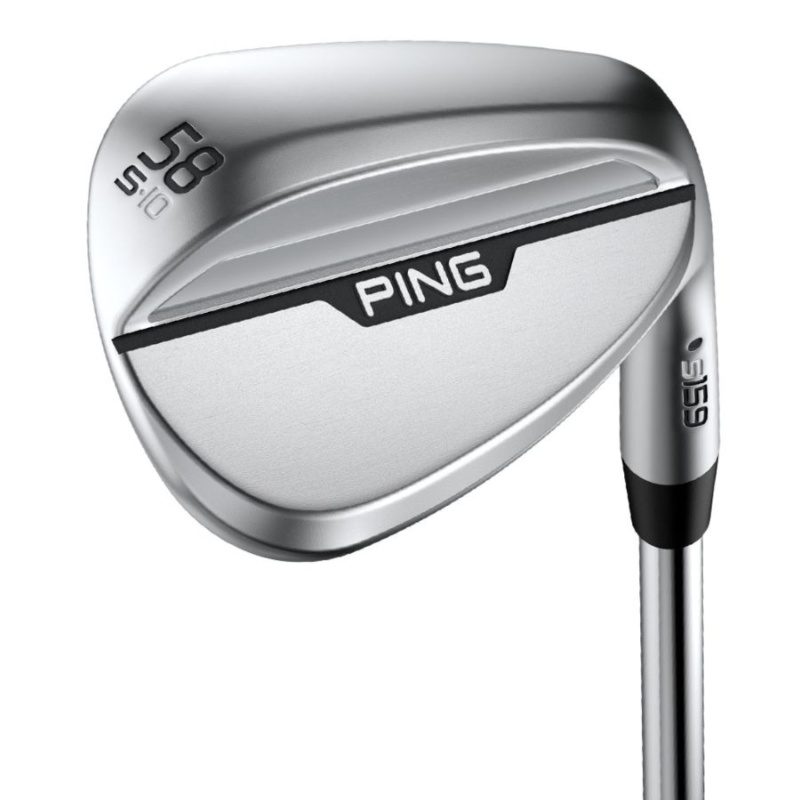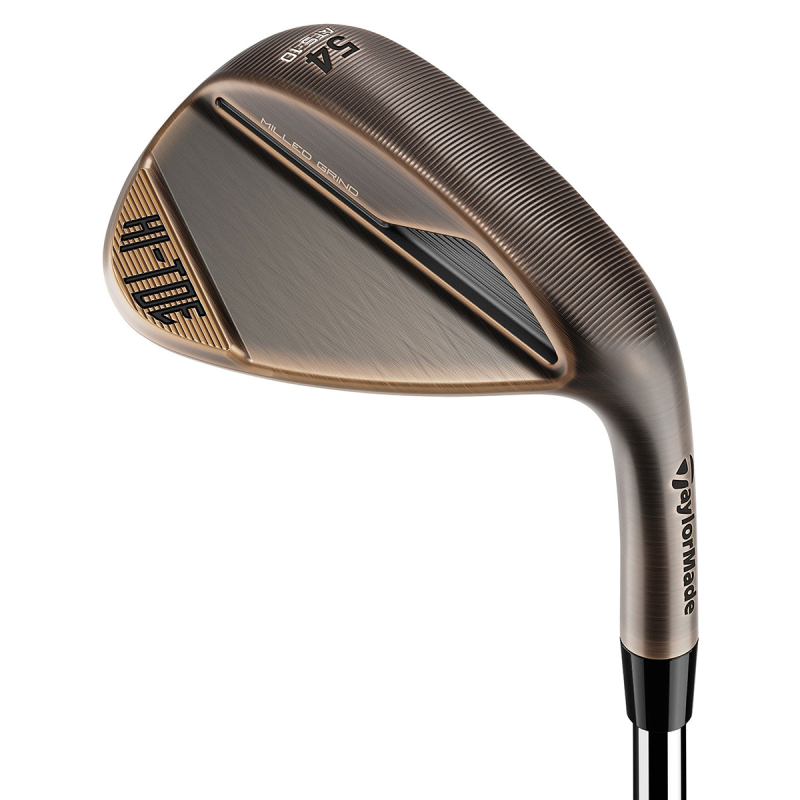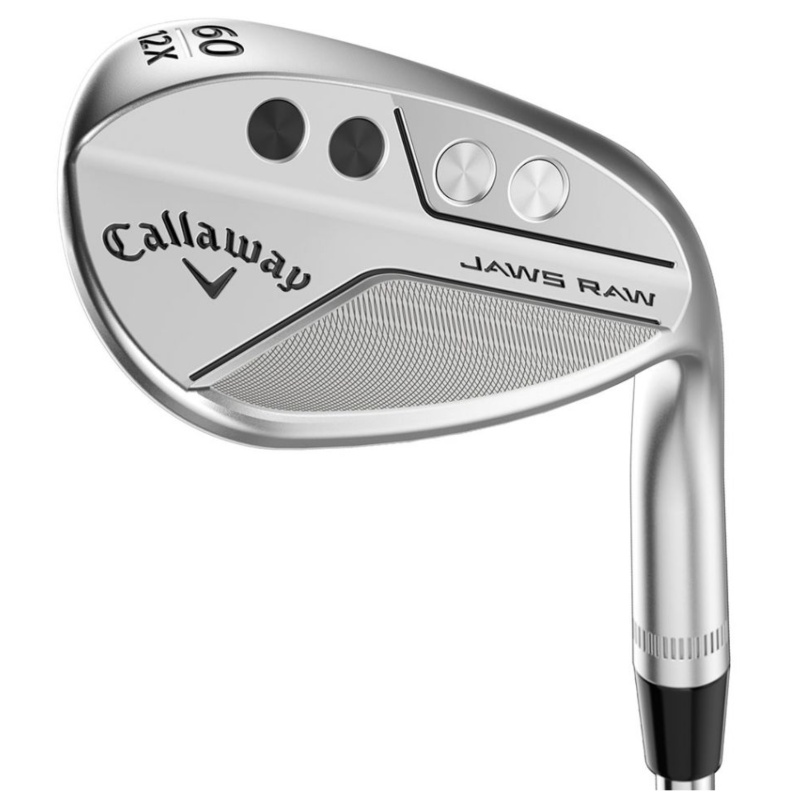Best High Bounce Wedges 2025
We run through some of the best wedges on the market with high bounce at the forefront of the design.
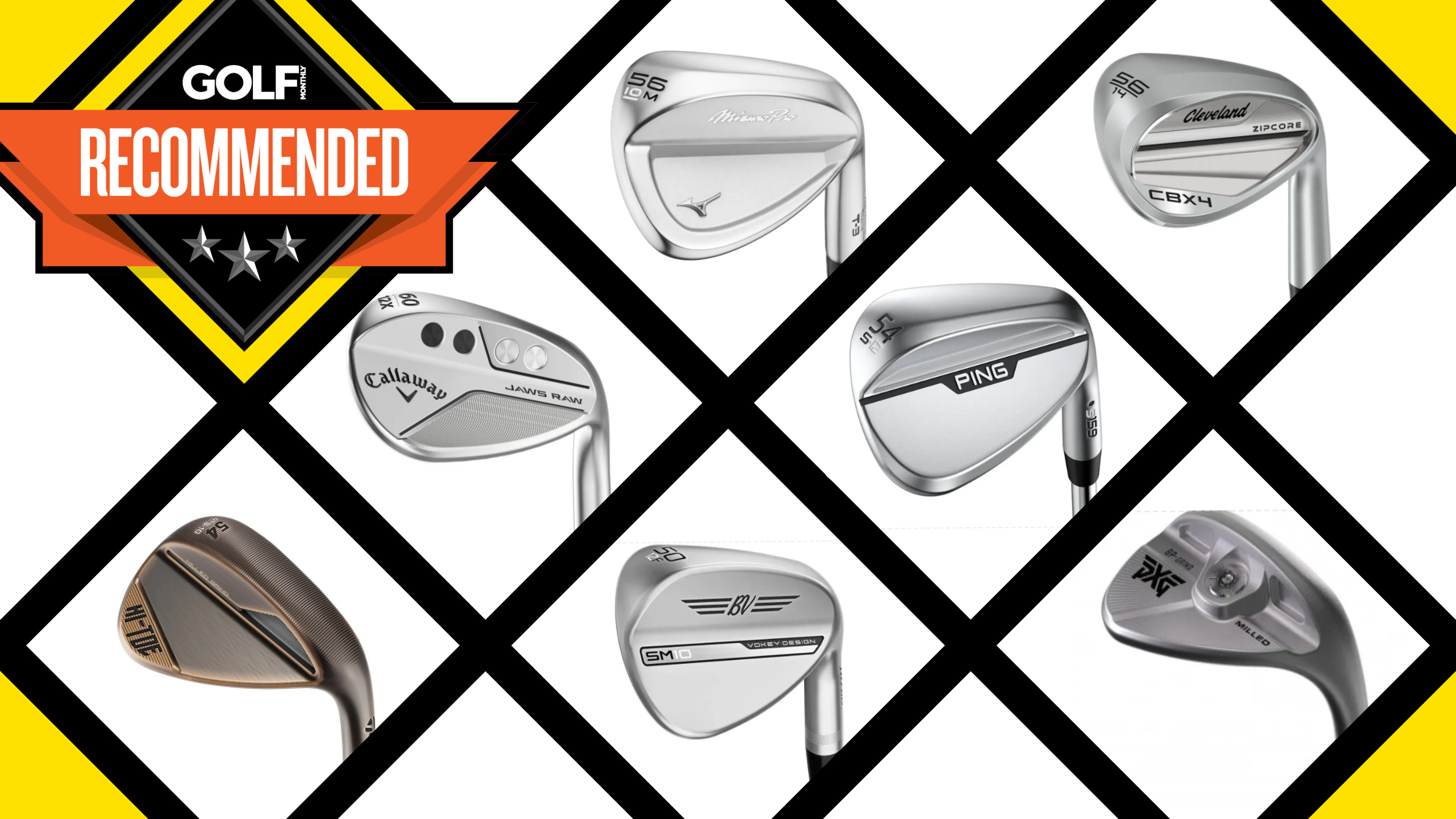

One of the most difficult areas of your golf game to master is the short game. This is where easy shots can be picked up on the course and is often why your wedges are known as your scoring clubs. And we all know how hard it is to be consistent around the greens. Some of the best golf wedges are designed to be playable off all kinds of lies, but we all know that every now and then there is a chance that you might chunk a chip shot, hitting your club into the ground before bottoming out on the golf ball. If you're prone to doing that, that's where wedge bounce wedge can help you.
If you didn't already know, some of the most forgiving wedges in the game deliver a degree of bounce that will vary depending on what lie you want to use that club from. If we're talking technically, wedge bounce is the angle created between where the leading edge and the lowest point of the sole strikes the ground. The higher the degree of bounce, the higher the leading edge will be off the surface at address, meaning that there is less chance your clubface will drag in the ground when you bottom out.
As a general rule, high bounce clubs are better for softer, fluffier lies, while lower bounce wedges are more appropriate for firmer lies, like compacted bunkers. And depending on your swing type, you may want to think about what type of wedge is best for you! Thankfully, there are a ton of excellent options out there on some of the best wedges in the game that can deliver a range of lofts in their bounce. We've highlighted below some of the best wedges for high bounce, but while you're here, why not also check out our guides to the best pitching wedges, best gap wedges and best lob wedges.
The Quick List
Best High Bounce Wedges
Titleist Vokey SM10 Wedge
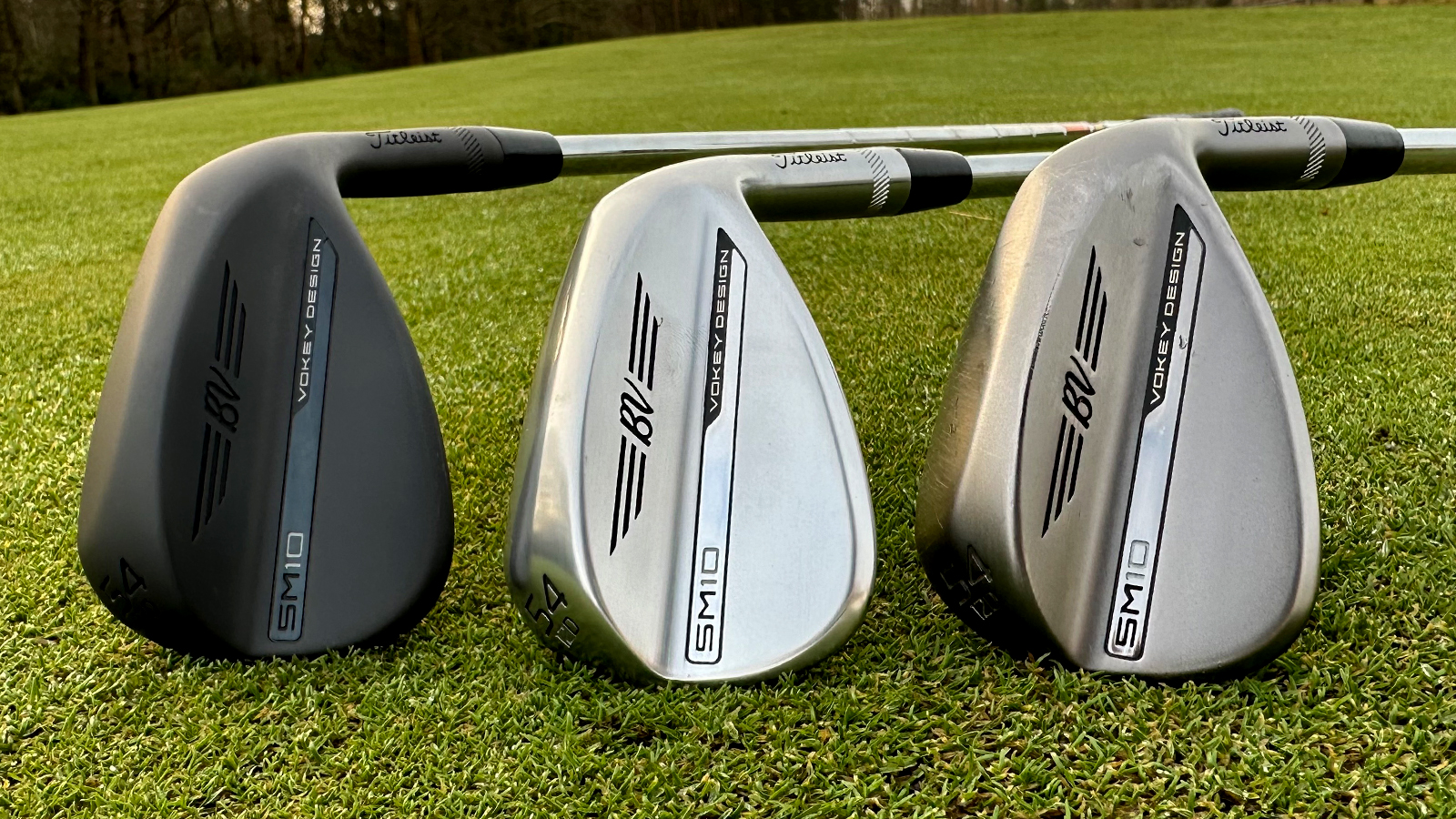
Specifications
Reasons to buy
Reasons to avoid
The SM10 which Titleist released in 2024 now features progressive shaping, which we think makes the club look fantastic at address across all the lofts available. The stronger lofts in these wedges come with a smaller head shape compared to the more lofted ones, they also come with a straighter leading edge compared to the likes of the sand and lob wedge.
When you compare the SM10 to last year's model you can see the lofted clubs have a sharper look when behind the ball, even with the more rounded leading edge. The higher lofts come with a bigger footprint, which helps to give them a more confidence-inspiring look which is going to help when over those tricky chips on tight lies.
In testing we saw that the wedges were only slightly better on the spin from 50 yards out, it wasn't until we tested them from 75 yards that you saw the big difference to the SM9 with nearly 200rpm more. It should also be noted that Titleist sets the standard when it comes to wedge set-up options with 25 different combinations of loft, bounce and grind.
- Read our full Titleist Vokey SM10 Wedge Review
Cleveland CBX 4 Zipcore Wedge
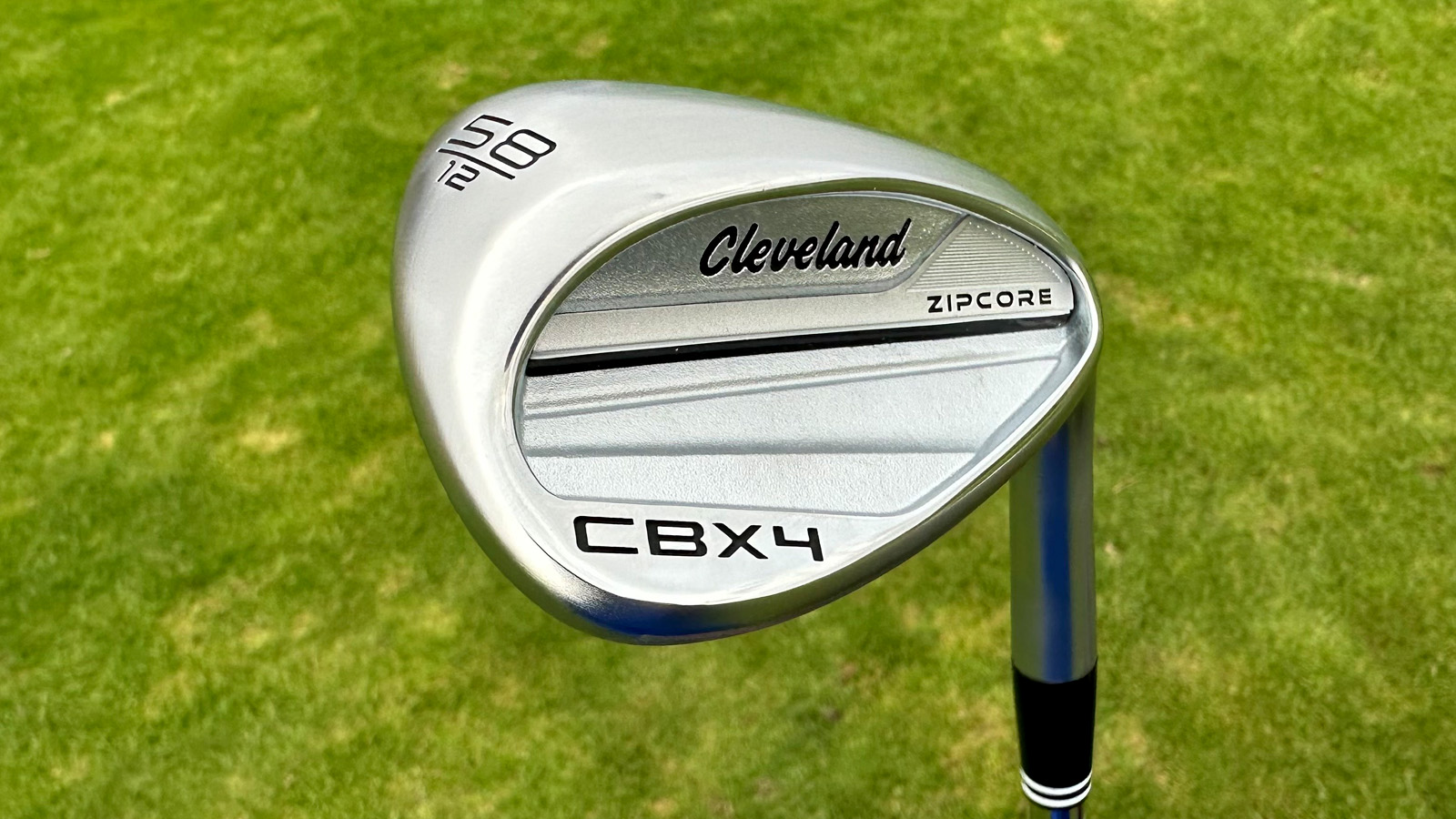
Specifications
Reasons to buy
Reasons to avoid
The CBX 4 Zipcore from Cleveland comes in on the slightly bigger side to help with forgiveness and give you more confidence at address. With a rounded leading edge, you get more versatility for your approach shots and when around the greens, giving us more creativity in testing, to adapt ball flight and change spin. With a Hydrazip face these wedges create great levels of spin with more friction on the surface of the face, meaning these are great even in wetter conditions.
With this wedge you get the same Zipcore technology that is found through most of the best wedges from Cleveland, What this does is allow the heavier steel found in the hosel to be replaced with a light and strong material that helps to reduce vibrations. Thanks to the weight saving from this, they can redistribute the weight across the toe and higher up, therefore increasing MOI by 7.8% and optimizing CG placement.
- Read our full Cleveland CBX 4 Zipcore Wedge Review
Mizuno Pro T-3 Wedge
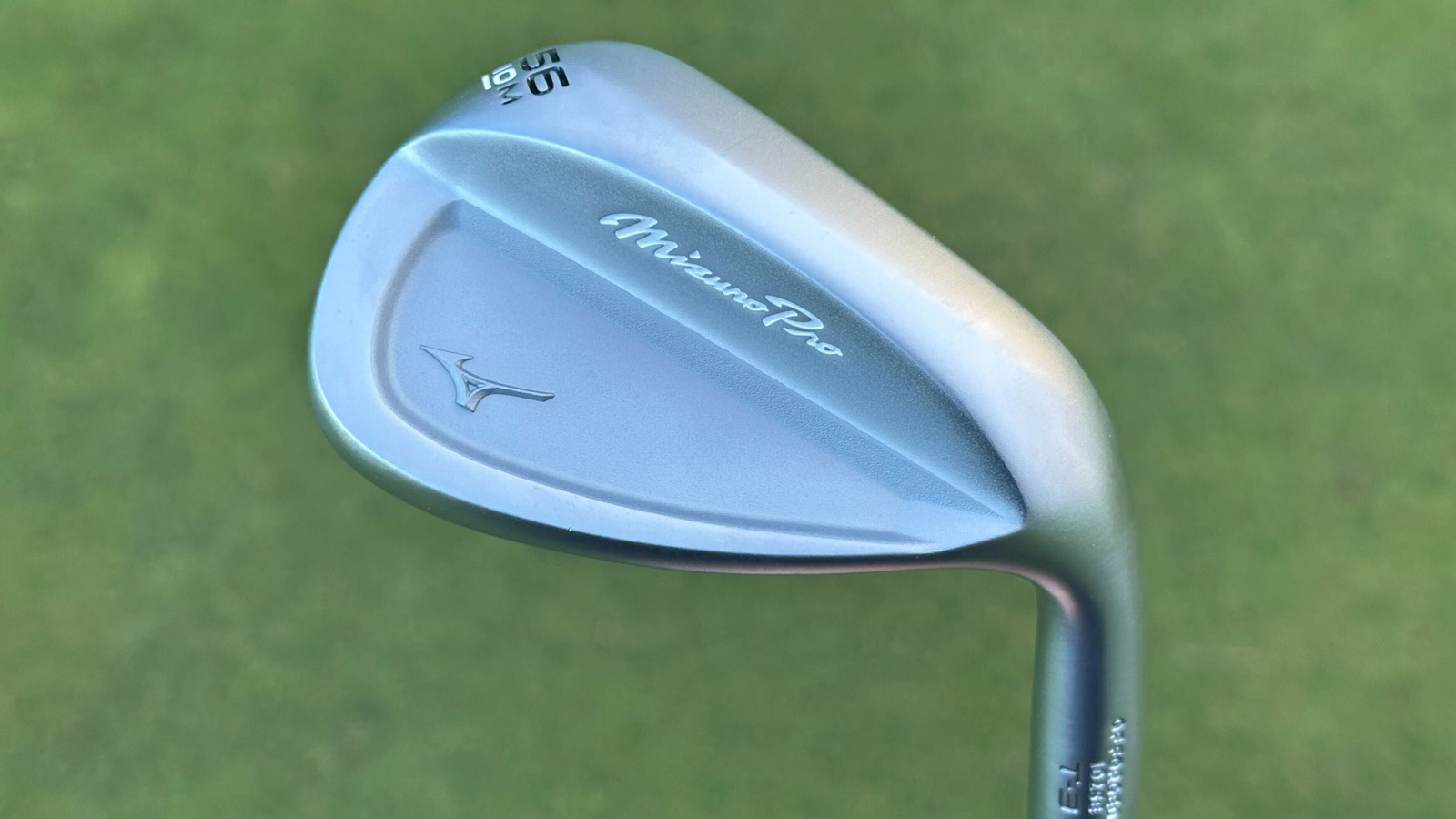
Specifications
Reasons to buy
Reasons to avoid
If you enjoy the look of Mizuno irons, you'll almost certainly love the visual package on offer from the Pro T-3 wedge. The shallow cavity-back design allows for a little more forgiveness on full swings whilst the longer blade length is designed to help with turf interaction, helping players create better contact off those skinny greenside lies.
When we tested the Pro T-1 wedge, the further we got from the green the less forgiveness we seemed to have. We're happy to say the same issue does not appear with the T-3 in hand. It’s by no means intrusive or as large as some of the most forgiving wedges but more so offers greater leeway on strike that not all of the best wedges for low handicappers do.
Unsurprisingly, this is a fantastic looking golf club and looks identical to the beautiful Pro S3 irons released earlier this year. As far as wedges go, the Mizuno Pro T-3 is like a Swiss Army Knife. It was excellent out of the rough and uneven lies and is available in three different grinds o no matter what turf type you regularly play on, there will be a Pro T-3 wedge to accommodate it.
- Read our full Mizuno Pro T-3 Wedge Review
Ping S159 Wedge
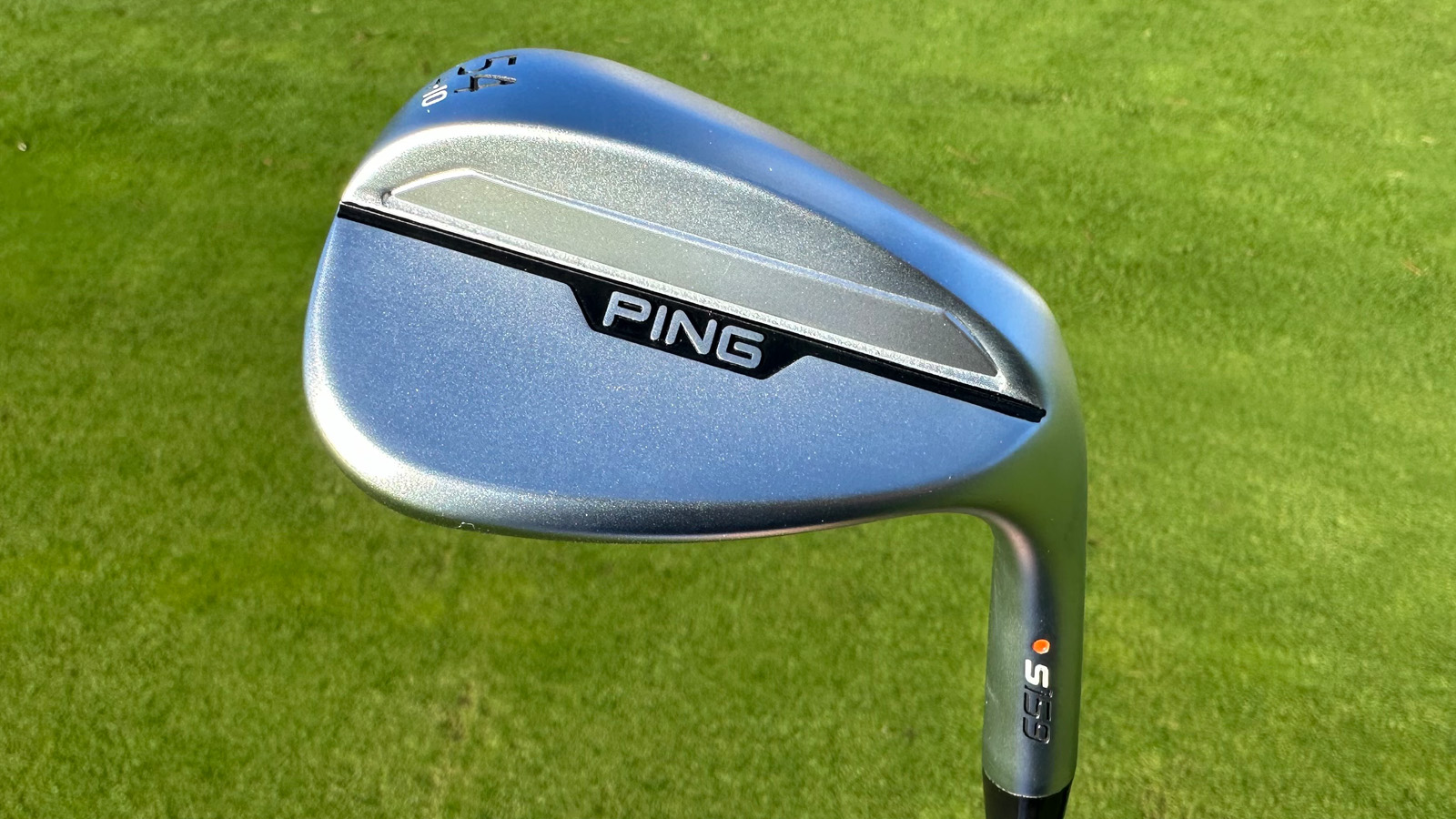
Specifications
Reasons to buy
Reasons to avoid
If you are looking for a wedge that has a slightly larger footprint than something like the SM10 then the S159 wedges from Ping are perfect. They have a bladed look, so they look great and suit the eye of a better player but have a larger footprint to inspire more confidence at address.
When we tested these wedges we found them to be mightily impressive. The feel from the face was soft and despite a vibration dampening slot placed on the back of the head, these wedges offered plenty of feedback. You also get a nice consistent mid to high launch and the spin performance is absolutely outstanding, especially on chip and pitch shots.
While these wedges aren't some of the most forgiving wedges or best wedges for beginners, that isn’t what they were designed for. They are targeted towards the more confident ball striker who is looking for a classic looking wedge, but with a bit of technology to help performance.
- Read our full Ping S159 Wedge Review
TaylorMade Hi-Toe 4 Wedge
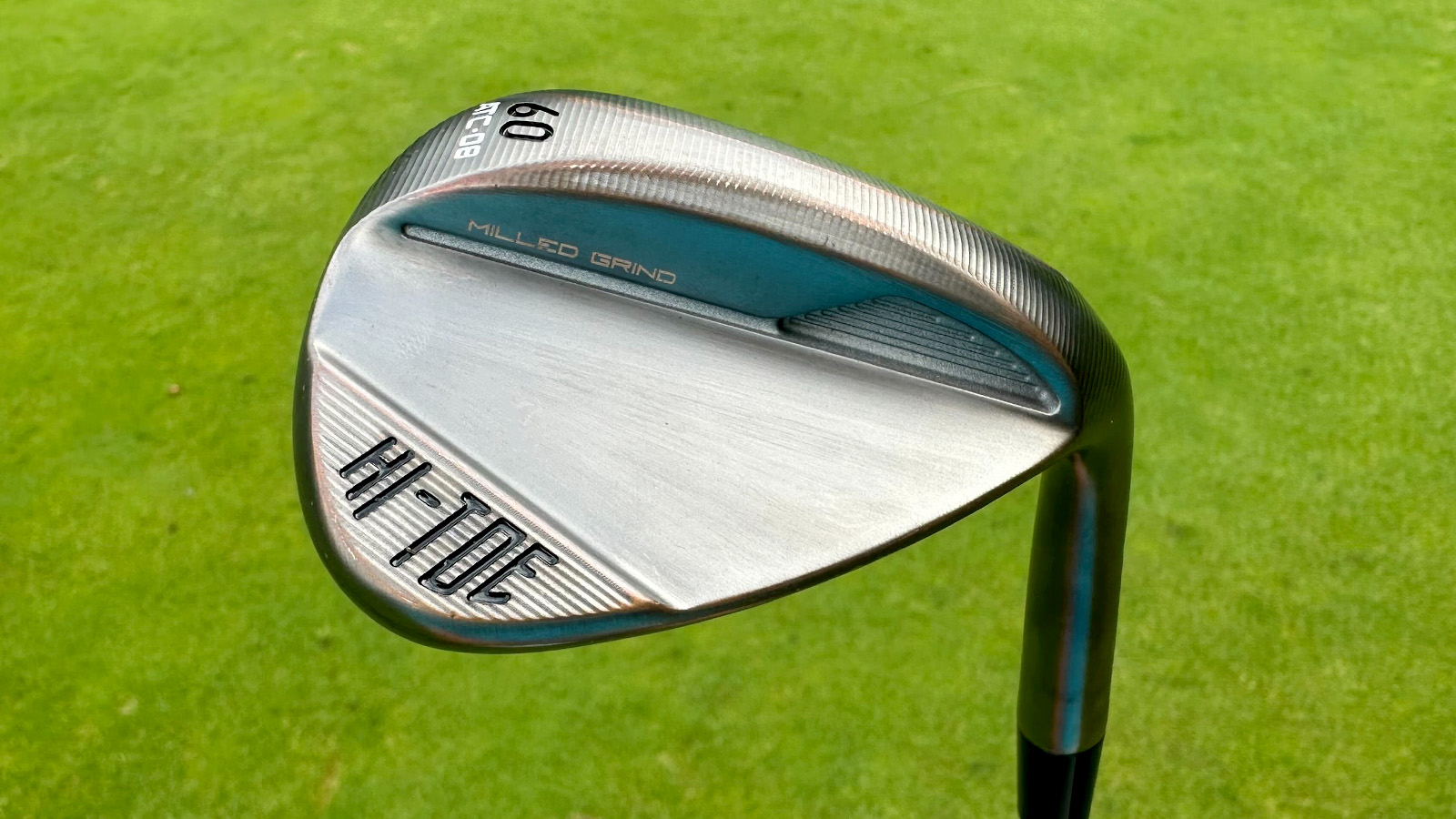
Specifications
Reasons to buy
Reasons to avoid
The TaylorMade Hi-Toe 4 wedge is the latest iteration in the Hi-Toe series, following in the footsteps of the Hi-Toe 3, Big Foot, and Hi-Toe Raw models. We were eager to put it to the test...
The Hi-Toe 4 maintains the copper finish that has become synonymous with the Hi-Toe line. Paired with a raw face, this finish reduces glare, which is a feature favored by many tour players. We thought the addition of a painted bottom groove not only aids in alignment but also complements the wedge's sleek aesthetic.
What sets the Hi-Toe 4 apart is its performance and versatility. The Spin Tread technology ensures excellent spin and control, whether from the fairway or rough. The full-face grooves, available in lofts of 54° and above, maximize surface contact with the ball, enhancing spin even on high-bounce shots.
The groove pattern mirrors that of the MG4 wedges, renowned for their spin control. Although some might prefer a straighter leading edge like that found on the Titleist Vokey SM10 or Ping S159 wedges, the slightly rounded leading edge of the Hi-Toe 4 offers a more forgiving feel. The laser etching on the face helps repel water, ensuring greater friction and spin in wet conditions—an advantage when hitting high-bounce shots that require precision and control.
On the whole, the Hi-Toe 4 wedge provides a balanced combination of forgiveness, versatility, and high-bounce performance.
- Read our full TaylorMade Hi-Toe 4 review
Callaway Jaws Raw Wedge
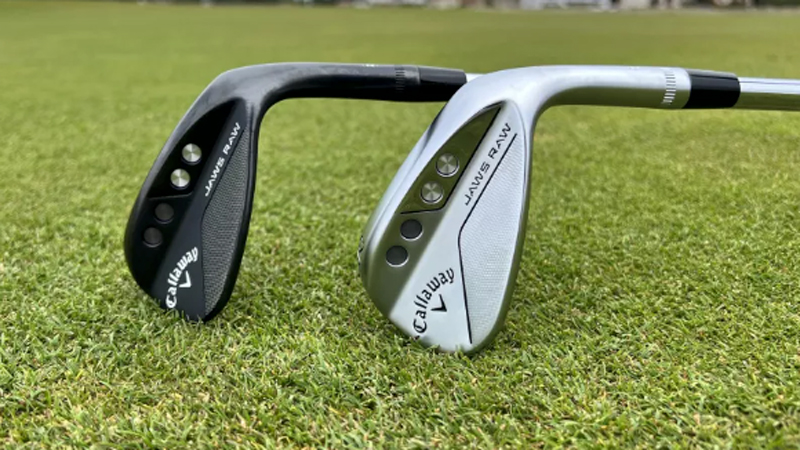
Specifications
Reasons to buy
Reasons to avoid
Designed by Roger Cleveland and said to feature the deepest, most aggressive grooves in golf, Callaway have added the Jaws Raw wedge to its well-renowned family of golf wedges. When we tested the club it's safe to say we weren't disappointed with the latest offering. Looks-wise, it features the same shape and visuals as we've come to expect from the Jaws range. It is well designed and features a subtle weight system that helps players bounce the club off the turf.
We were really impressed with the spin on offer from the club's micro-grooves and Raw face. Spin on shorter chips was impressive and the control this wedge offered over a variety of different shots is what stood out most about this club. We also found it very easy to get underneath the ball thanks to the Callaway's Z Grind sole that has been designed to skid along the turf rather than dig into it. On firm ground, that makes the Raw Jaws a very handy club to have in your bag. It is a fantastic club for any player looking to generate greater stopping power around the greens.
- Read our full Callaway Jaws Raw Wedge Review
How we test
When testing wedges, we play with the clubs during multiple rounds and also use them in practice to assess how each club perform. If a wedge has a particular characteristic or if it claims to be the ultimate bunker club, we'll put that theory to the test and use that club across a variety of different lies.
Specifically, when reviewing sand wedges, we assess a number of different factors on the club. For example, we will look at how forgiving that wedge is, how easy it is to generate spin with that club, how the club feels, how much control the wedge provides and the overall aesthetics of the club. For more information on how Golf Monthly tests products, take a look at our methodology here. Wedge testing is headed up by Golf Monthly Staff Writer Sam De'Ath, a former competitor on the EuroPro Tour and Clutch Pro Tours.
How to choose wedges
Wedges are one of the most technical clubs in the game. And when buying a new wedge, there are a ton of things you need to consider. We've put together a brief list of points below that will fill you in on the key points to remember when buying your next wedge.
1. Gapping
Measure your current wedge yardages and how often you are in between clubs to help decide if you need to carry extra options. This is an important part of your bag setup to get right across the entire bag too, because knowing your gaps can allow you to fill out your bag correctly whether that be carrying two, three, or four wedges, which can then impact how many clubs you can carry at the top of the bag. The opposite is true as well. We have also created a guide on the best gap wedges as well so check that out for more information.
2. Bounce
Low bounce wedges are more suited to hard fairways and tight lies, while high bounce wedges are better for softer ground conditions and bunkers. The most bounce you will ever see on a wedge is about 18°, but it can be as low as 2°. The type of bounce you opt for should largely depend on things like your normal angle of attack, the firmness of your fairways and the type of shots you like to hit around the greens. Sometimes it may be best to have a range of wedges with different bounce degrees in your bag. For example, I'd go for a lob wedge with a lot of bounce to help me keep the clubface out of the ground and get the ball up in the air. You may then perhaps opt for a lower bounce pitching wedge to help dig the ball out of tougher lies!
3. Finish
Options like black PVD and copper are becoming increasingly common. The difference is mainly cosmetic, but dark finishes can help reduce glare. Alternatively there are classic chrome and silver designs as you can see above so it is a case of picking a design you like the look of not just at address, but in the bag as well.
4. Grooves
While grooves are now tightly regulated, it is still well worth keeping up to date with the latest designs, which use new milling processes and groove shapes to help move water and dirt away from the ball at impact to create extra spin and improve control. Additionally there are several brands that have brought out wedges with grooves that stretch across the entire face. Admittedly this does take a little bit of time to get used to, but for those players who may struggle with strike, a full faced wedge might do you some favors when creating spin towards the toe.
5. Forgiveness
Forgiveness is one of the most important things to consider when purchasing a new set of wedges. Many golfers struggle with consistency around the greens and often find themselves chunking chip shots on a regular basis. That can often be eliminated by playing with a wedge that delivers a decent rate of forgiveness. That comes largely back to the weighting of the club and where the centre of gravity sits on the back of the club head. The lower and further back it is, the better chance you have of making a decent connection on the ball and lofting it up into the air - reducing the chance of hitting it fat. Check out our guide on some of the most forgiving wedges for more details!
For more advice on what wedges to buy, check out our guides on the best wedges for chipping, best sand wedges and best golf wedges for beginners.
FAQs
Who should use high bounce wedges?
High bounce wedges are better suited to players who take a lot of divots in their swing and have a steep angle of attack on the ball. A steep angle of attack can sometimes drive the club face down into the turf, meaning you're more likely to hit the ball fat - but a high bounce wedge combats this by preventing the club face from dragging in the ground.
Are high bounce wedges better?
That depends on your swing and the lie you're playing from. Yes, high bounce wedges tend to perform better on fluffier lies and can add more spin and height to your wedge game. But low bounce wedges can also be effective on tighter lies and in areas where you may need to dig the ball out of firmer ground.
Are high bounce wedges more forgiving?
Yes, high bounce wedges tend to be the most forgiving. That is because of the way the club head is designed to ensure the club face stays clear of the ground as much as possible. The loft angle on the club means that its toe will bounce clear of the turf and stay clear to strike the ball, allowing players to hit cleaner, fuller chips.
Subscribe to the Golf Monthly newsletter to stay up to date with all the latest tour news, equipment news, reviews, head-to-heads and buyer’s guides from our team of experienced experts.

Sam has worked in the golf industry for 14 years, offering advice on equipment to all levels of golfers. Sam heads up any content around fairway woods, hybrids, wedges, putters, golf balls and Tour gear.Sam graduated from Webber International University in 2017 with a BSc Marketing Management degree while playing collegiate golf. His experience of playing professionally on both the EuroPro Tour and Clutch Pro Tour, alongside his golf retail history, means Sam has extensive knowledge of golf equipment and what works for different types of golfers.
- Conor KeenanEcommerce Writer
- Sonny Evans
